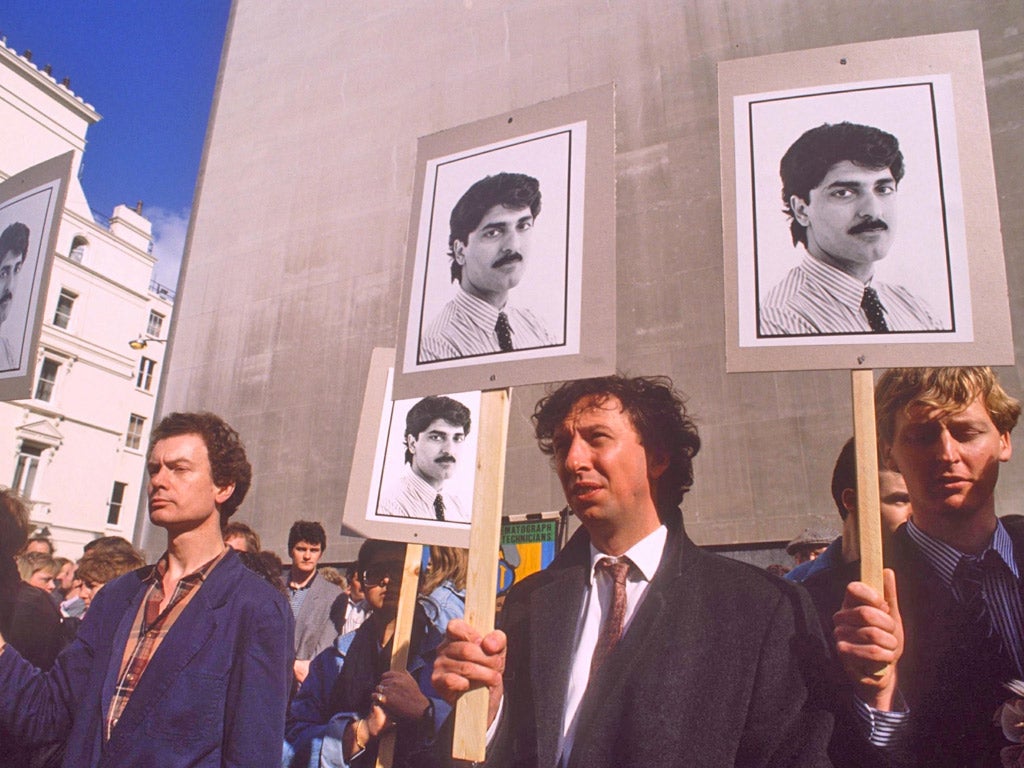Saddam gave order to execute Observer reporter

Your support helps us to tell the story
From reproductive rights to climate change to Big Tech, The Independent is on the ground when the story is developing. Whether it's investigating the financials of Elon Musk's pro-Trump PAC or producing our latest documentary, 'The A Word', which shines a light on the American women fighting for reproductive rights, we know how important it is to parse out the facts from the messaging.
At such a critical moment in US history, we need reporters on the ground. Your donation allows us to keep sending journalists to speak to both sides of the story.
The Independent is trusted by Americans across the entire political spectrum. And unlike many other quality news outlets, we choose not to lock Americans out of our reporting and analysis with paywalls. We believe quality journalism should be available to everyone, paid for by those who can afford it.
Your support makes all the difference.The former Iraqi dictator, Saddam Hussein, personally ordered the swift execution of Farzad Bazoft, an Iranian-born freelance journalist working for The Observer in early 1990, shortly before the first Gulf War, even as the Government of Margaret Thatcher was scrambling to win him clemency, new recordings have revealed.
Just how hopeless were Britain's efforts to intervene is clear from passages pulled from an archive of conversations between Hussein and members of his inner circle first seized by the US after the fall of Baghdad in 2003, parts of which now have been released to researchers.
More broadly, the transcripts, spanning many years, show also how hapless Saddam was in misreading diplomatic realities and in allowing paranoia to cloud his thinking.
Mr Bazoft was taken into custody after reporting a story for his newspaper about an unexplained explosion at a military complex south of Baghdad. The Iraqi leadership seemingly drew the conclusion, which was erroneous, that the reporter was spying in Iraq on behalf of Israel. The case drew worldwide attention and winning back Mr Bazoft's freedom became a top priority of British diplomacy.
The notion Hussein would have any concern for the British pleadings was misplaced, however. The recordings show him voicing frustration that after Mr Bazoft's conviction it might take a full month for him to be executed by hanging. "A whole month?" he exploded discussing the case with aides. "I say we execute him in Ramadan, and this will be the punishment for Margaret Thatcher." The reporter was hanged on 15 March 1990, before Ramadan and just six months after his arrest.
The transcripts also show Saddam scoffing at efforts made by Mrs Thatcher to recruit King Hussein of Jordan to broker a solution to the case. "A mediator! Only God can mediate for him," Saddam said, according to the transcripts, the release of which was reported by The New York Times. "Are they [the British] underestimating us? After all the damages we've suffered and sacrifices that we have made over the last eight years, the British still do not know us well! Thatcher sent us a nice message, and we answered her with a nicer message, huh?"
The episode came at a critical time when Iraq was picking itself up from the catastrophic eight-year conflict with Iran and was only a few months away from its invasion of Kuwait.
Among the bungles of Hussein illuminated by the transcripts was his misunderstanding of America's likely reaction once that invasion got under way, namely it would not interfere.
Join our commenting forum
Join thought-provoking conversations, follow other Independent readers and see their replies
Comments